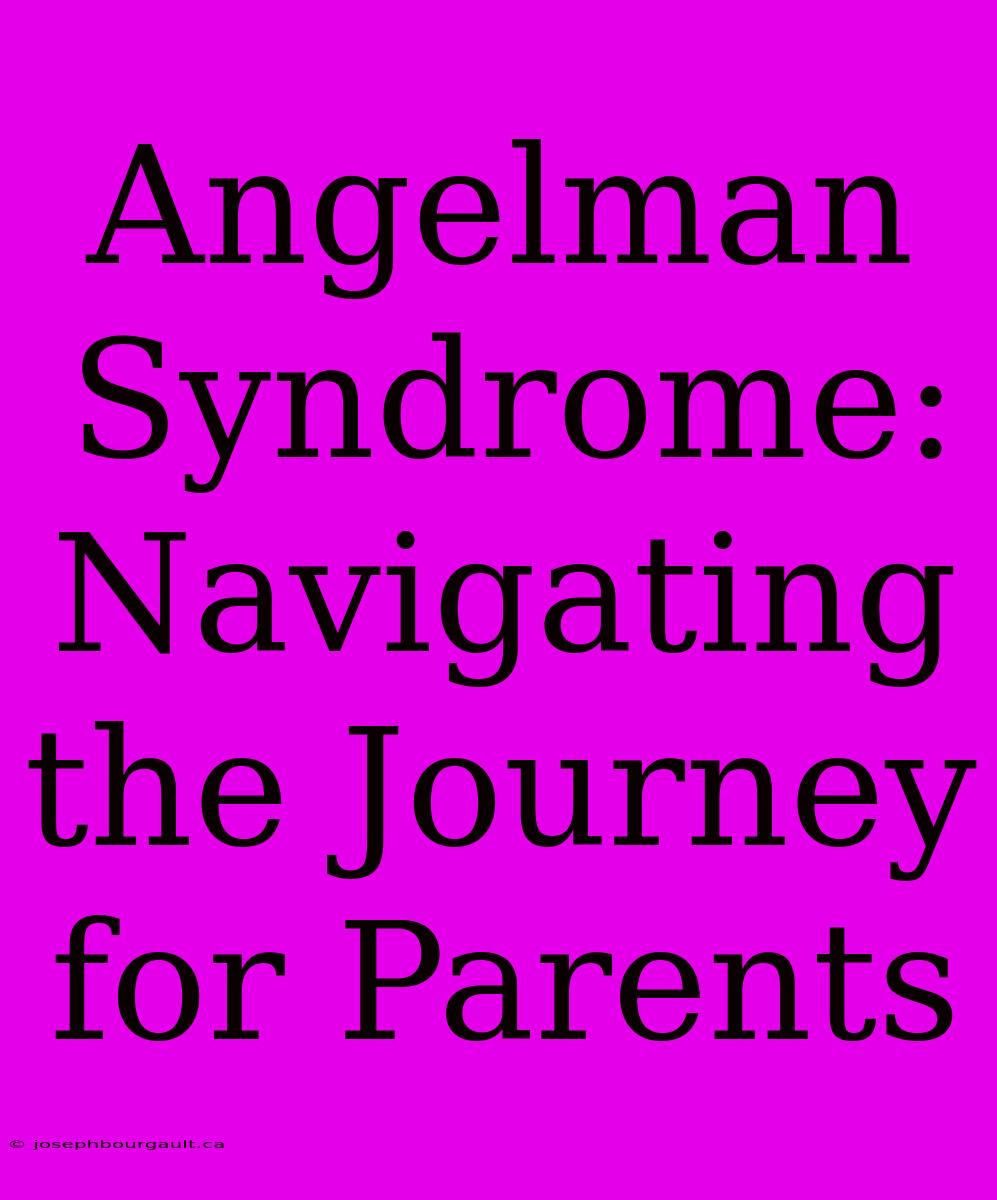Angelman Syndrome: Navigating the Journey for Parents
Angelman Syndrome (AS) is a rare neurogenetic disorder that impacts a child's development in many ways, affecting their physical, cognitive, and behavioral abilities. This journey, while challenging, is also filled with love, strength, and unique joys. This article aims to provide support and resources for parents navigating this complex journey.
Understanding Angelman Syndrome
AS is caused by a deletion or mutation in the UBE3A gene, located on chromosome 15. This gene is responsible for producing a protein essential for brain development. Symptoms of AS typically appear during infancy and include:
- Developmental Delays: Children with AS often have delayed milestones in speech, walking, and motor skills.
- Cognitive Impairment: Individuals with AS may have learning disabilities and difficulty with communication.
- Happy Disposition: Despite their challenges, children with AS are known for their happy, affectionate personalities, often displaying a “happy puppet” demeanor.
- Movement and Balance Issues: Ataxia (lack of coordination) and problems with balance are common.
- Seizures: Seizures can occur in a significant percentage of children with AS.
The Emotional Rollercoaster:
The diagnosis of AS can be a significant emotional event for parents. It's natural to experience a range of feelings, including shock, grief, fear, and uncertainty. It's important to allow yourself to process these emotions and to seek support from others.
Building a Support Network:
1. Support Groups: Connecting with other parents of children with AS is invaluable. Sharing experiences, advice, and emotional support can make a world of difference. The Angelman Syndrome Foundation (ASF) offers resources for connecting with local support groups.
2. Medical Professionals: Building a team of specialists, including a geneticist, neurologist, developmental pediatrician, and physical therapist, is crucial for managing your child's care.
3. Advocacy Organizations: Organizations like the ASF provide resources, research, and advocacy for the AS community.
Navigating Daily Life:
1. Early Intervention: Early intervention is critical in helping children with AS reach their full potential. Speech therapy, occupational therapy, and physical therapy can address specific challenges.
2. Creating a Supportive Environment: A structured and predictable environment can be beneficial. Visual aids, routines, and positive reinforcement can aid in communication and learning.
3. Celebrating Milestones: Focus on celebrating the progress your child makes, no matter how small. Every milestone is a victory.
4. Caregiving Tips: Managing a child with AS can be demanding. Prioritize self-care, build a support system, and don't hesitate to ask for help when needed.
Hope and Promise:
While AS presents unique challenges, it's important to remember that every child is different and can thrive with the right support. With ongoing research and advancements in therapies, there is hope for a brighter future for children with AS.
Resources:
- Angelman Syndrome Foundation (ASF): https://www.angelman.org/
- National Institutes of Health (NIH): https://www.ncbi.nlm.nih.gov/books/NBK1227/
- Angelman Syndrome UK: https://angelman.org.uk/
Remember, you are not alone in this journey. Embrace the unique spirit of your child, find support, and celebrate the joy they bring to your life.

